Jim Jordan suspends bid to be Speaker; endorses reforms giving powers to interim Speaker Patrick McHenry
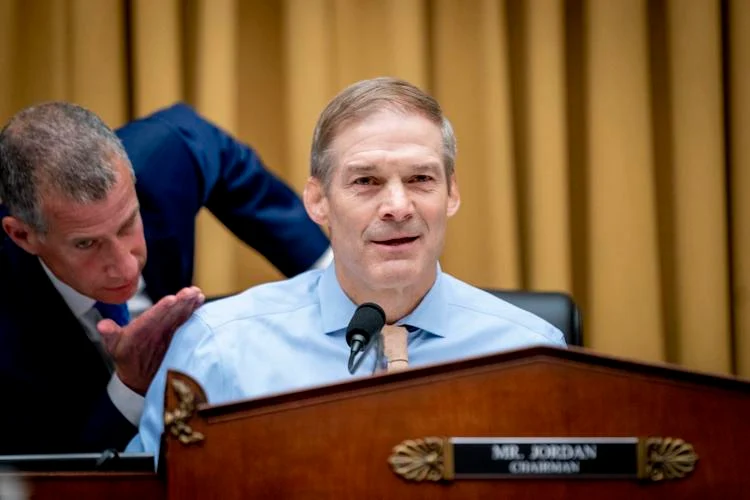
On Thursday, Congressman Jim Jordan (R-Ohio) suspended his bid to be Speaker of the House. He announced that he will now back giving powers to interim Speaker Republican Patrick McHenry.(R-North Carolina). More than 20 House Republicans have stood against Jordan’s bid to be the next Speaker of the House. A third-floor vote on Jordan’s speakership had been scheduled for midday on Thursday, but at a meeting of the House Republican Caucus, it became apparent that the mainstream Republicans opposing Jordan as Speaker were not ready to be swayed. Rep. Jim Banks told reporters that Jordan told the conference that he would not seek a third vote for Speaker knowing the outcome and would instead back a plan to give powers to interim Speaker McHenry to hold the post until January. Congressman Barry Moore (R-AL02) is the strongest supporter of Jordan. “To me, Jim Jordan being in this race is quite amazing when you figure that he was one of the founders of the House Freedom Caucus just a few short years ago,” Rep. Moore said recently. “I talked with Senator Bud the other night, and he said who would have ever dreamed that Jim Jordan would up for Speaker of the House given his conservative leanings. What I tell everybody is that there is a mass movement across this country right now. You see it with the Bud Light and Oliver Anthony with the Rich Men North of Richmond (a pop song). There is a lot of pressure on the rich men north of Richmond.” Moore expressed frustration with members who oppose Jordan. “How do you defend not voting for Jim Jordan?” Moore said. “There is not a principled stand if you are a Republican and the party of Reagan, and there is not anybody that I know of right now who can get to the 217 without working with the Democrats.” Those comments were made before Jordan suspended his campaign. If those rule changes pass, the House will be able to function so Congress can get back to work. Republicans who control the House 221 to 212. Jordan got 200 votes on Tuesday but just 199 votes on Wednesday. Some GOP Congress members who have opposed Jordan, report receiving death threats. To connect with the author of this story or to comment, email brandonmreporter@gmail.com.
Mike Rogers calls for defense investments to face new threats to U.S.
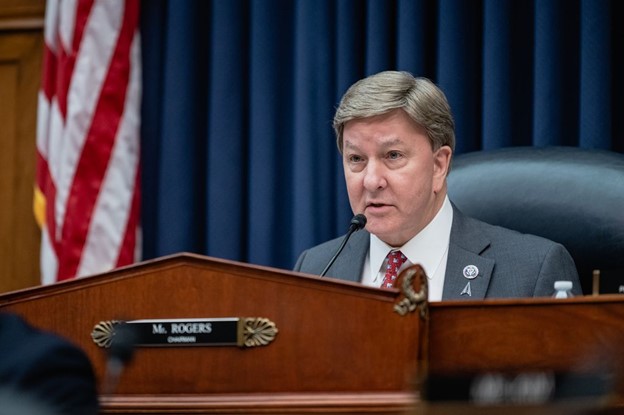
On Wednesday, the powerful House Armed Services Committee held a hearing on the fiscal year 2024 Defense Department budget request. U.S. Representative Mike Rogers Chairs the Committee. Chairman Rogers said in his opening remarks, “The threats we face today are more formidable than at any point in the last 20 years.” “The President’s disastrous withdrawal from Afghanistan has left us nearly blind in the worst terrorist hotspot on the globe,” said Rogers. “North Korea is lobbing ICBMs over Japan and threatening us with nuclear annihilation on a near-weekly basis. Iran continues to fund and equip terrorists targeting Americans. Last week, one American died, and seven were wounded when the Ayatollah’s terrorist proxies attacked our bases in Syria. We continue to sit by and watch as his regime aggressively pursues nuclear weapons. Undersecretary Kahl told us last month that the Ayatollah is 12 days away from having enough fissile material for a nuclear bomb. We absolutely cannot allow that to happen. Finally, the Ayatollahs exporting kamikaze drones and other advanced weapons to Russia. And Putin is using them to kill innocent civilians and further his brutal invasion of Ukraine.” “Putin is also threatening our NATO allies by deploying tactical nuclear weapons to Belarus, stepping away from New Start, and stepping up his harassment of American forces in Eastern Europe and Syria,” Rogers continued. “But most concerning is the strengthening alliance between Putin and Xi. Putin is literally fueling the Chinese Communist Party’s strategic nuclear breakout with Rosatom highly enriched uranium.” “In what former STRATCOM Commander Richardson described as “breathtaking,” the CCP has doubled the number of nuclear warheads in just two years,” Rogers added. “The CCP is starting to outpace us on new battlefields as well. The CCP has leapfrogged us on hypersonic technology. They are fielding what we are still developing. And their rapid advances in space were one of the primary reasons we established the Space Force.” “We all know the CCP is not building these new and advanced military capabilities for self-defense,” Rogers warned. “We watch their ongoing attempts to intimidate and coerce Taiwan and our allies and partners in the region. Just this week, they threatened the Navy with “serious consequences” after we exercised our right to sail through international waters in the South China Sea. And we’ve heard from Combatant Commanders over the past month about how the CCP has used economic coercion to gain footholds on new continents. We also heard about their efforts to expand their military presence in Africa and sign new security agreements in South America and the Middle East. Finally, we all know from the spy balloon incident that XI and the CCP are no longer hesitant to take provocative action against the American homeland. These are just a few of the growing threats confronting our nation. How we respond to them is the biggest test we face as Americans.” Rogers said that the U.S. must respond to these growing threats “with sustained investment in the men and women of our armed forces and the modernization of our conventional and strategic deterrent. These investments are going to be expensive, but neither the President nor Congress can shy away from them. We no longer have the luxury of time.” Rep. Jim Banks said in a statement, “We now have a Space Force, the end of operations in Afghanistan, a Russian war in Ukraine on the eastern flank of NATO and the ever increasing threat of the PRC military in the South China Sea and in other locations throughout the world.” Rep. Mike Gallagher said, “I’ve repeatedly expressed my concerns about the Department’s pace for growing and modernizing the ships, aircraft, and weapons required for the potential fight with China. If we accept that we need more time to build the platforms required for a kinetic conflict, it’s my genuine belief that our ability to robustly use information and cyber operations should provide us with the opportunity to “buy time to maneuver” for our kinetic forces.” Rep. Rob Wittman said, “The National Defense Strategy is clear in its focus on China as our nation’s pacing threat. During my previous tenure as Ranking Member on the Seapower and Projection Forces subcommittee, we oversaw critical capabilities of the long-range strike and long-range logistics portfolios. They are essential components for executing INDOPACOM’s military strategy and enabling operational success of the joint force competing against the tyranny of distance in response to ever-increasing Chinese aggression.” “I am worried about the Department’s current direction regarding the composition of the U.S. military’s tactical fighter force structure and required capabilities,” Wittman continued. “I am concerned that our existing force structure is optimized for a counter-insurgency fight and is not prepared to address the challenges posed by expected threats in the INDOPACOM area. As I review the plans for each service, two threads are particularly concerning. First, our fighter force structure continues decreasing. And second, we are not able to deliver replacement aircraft at affordable prices to achieve similar quantities going forward. Meanwhile, our adversaries continue out-pacing us, building and fielding their own lethal fighter capacity and capabilities.” On March 9, the Biden Administration submitted an $842 billion budget request to the Department of Defense for FY2024. Rogers is in his eleventh term representing Alabama’s Third Congressional District. To connect with the author of this story or to comment, email brandonmreporter@gmail.com.
Mike Rogers and Jim Banks seek answers on how Covid-19 vaccine mandate impacted service members

In January, Congress overturned the military COVID-19 vaccine mandate. Now Congressmen Mike Rogers, Chairman of the powerful House Armed Services Committee (HASC), and Jim Banks, the Chairman of the HASC Subcommittee on Military Personnel, have sent a letter to Secretary of Defense Lloyd Austin seeking answers on the impact of the COVID-19 vaccine mandate on servicemembers. Rogers and Banks expressed their displeasure that the Department of Defense has been slow to respond to HASC committee inquiries. “A letter of December 23, 2022, requested ‘your plan to implement this statutory requirement.’ Your four-sentence reply to the letter on January 26, 2023, failed to include any implementation plan,” Rogers and Banks wrote. “Additionally, staff has repeatedly asked for answers to many COVID-19 rescission questions critically important to the retention and recruitment of men and women in each of the armed services.” “We write to express our concern over the lack of clarity provided to the Armed Forces and to the American people related to your memorandum announcing the Department of Defense’s (DoD) rescission of the COVID-19 vaccine mandate,” Rogers and Banks continued. “While we acknowledge and appreciate your rescission memorandum writ large, many questions remain and have gone unanswered regarding the implementation of the rescission.” The Congressmen have asked for answers to a series of questions: · The COVID-19 rescission implementation plan, including implementing guidance and responsibilities within the Department of Defense and the Military Departments · The COVID-19 rescission strategic communication plan to the Armed Forces · The number of discharges that occurred between the signing of the NDAA and the time of your rescission directive · The treatment of potential recruits and accessions who have not taken the COVID-19 vaccine · The effect of the COVID-19 rescission on civilian personnel, including any changes to the current travel policy · The number of discharges for the roughly 6000 Active Component servicemembers and 2000 Reserve Component servicemembers separated because of the mandate, broken down by rank, years of service, and date separated (as well as their discharge characterization) · The number of servicemembers required to pay back bonuses, the average amount to be repaid, and the amount already repaid · Whether DoD policy still requires repayments of bonuses · The number of National Guard members prevented from drilling because of the mandate, including the number of drills missed and amount of time they were prevented from drilling · Reasons why DoD stopped reviewing accommodation of requests from servicemembers who sought vaccination exemptions · Whether service academies have fully removed vaccine mandates for students and faculty · Whether any students at the service academies were refused diplomas due to failing to abide by the prior vaccine mandate, and if so, whether the academies will be making these students whole by providing diplomas and clear student records upon or following graduation · Whether DoD has reinstated any servicemembers forced out for failure to abide by the vaccine mandate, and DoD’s plan for ensuring that reinstatement is offered to any separated servicemembers; and, Austin has issued a memorandum overturning the mandate following passage of a National Defense Authorization Act requiring him to do so. The rescission mandate written states, “no individuals currently serving in the Armed Forces shall be separated solely on the basis of their refusal to receive the COVID-19 vaccination if they sought an accommodation on religious, administrative, or medical grounds.” The wording of this memorandum prompted more specific questions from Rogers and Banks: · Does this directive of your rescission memorandum mean that unless servicemembers submit an accommodation request, they are still required to receive the COVID vaccination? · Are potential military recruits required to submit an accommodation request to avoid being forced to receive the COVID vaccine? Rogers and Banks are requesting that the Department of Defense provide answers to these questions to the Committee no later than February 21, 2023. “Answers to these questions are crucial for Congress to fulfill its appropriate oversight responsibilities and provide any required legislative relief,” Rogers and Banks wrote. “Please note, many of the questions or requests for information presented above have gone unanswered for weeks, if not months. The Department and the Biden Administration must no longer refuse to respond to requests for information from this Committee.” The Committee on Armed Services has oversight jurisdiction over the Department of Defense. Many members of the military have expressed concerns about the COVID-19 vaccine. Despite this vaccine hesitancy, Austin, at the direction of President Joe Biden, instituted a blanket mandate requiring service members, Department of Defense civilian employees, and even all the employees of defense contractors receive the vaccine. Some members of Congress have suggested that the mandate has adversely affected morale and led to the forced separation of many soldiers, sailors, and airmen. Mike Rogers was recently elected to his eleventh term representing Alabama’s Third Congressional District. To connect with the author of this story or to comment, email brandonmreporter@gmail.com.
Rep. Mike Rogers seeks answers about racially disparaging remarks by DODEA official
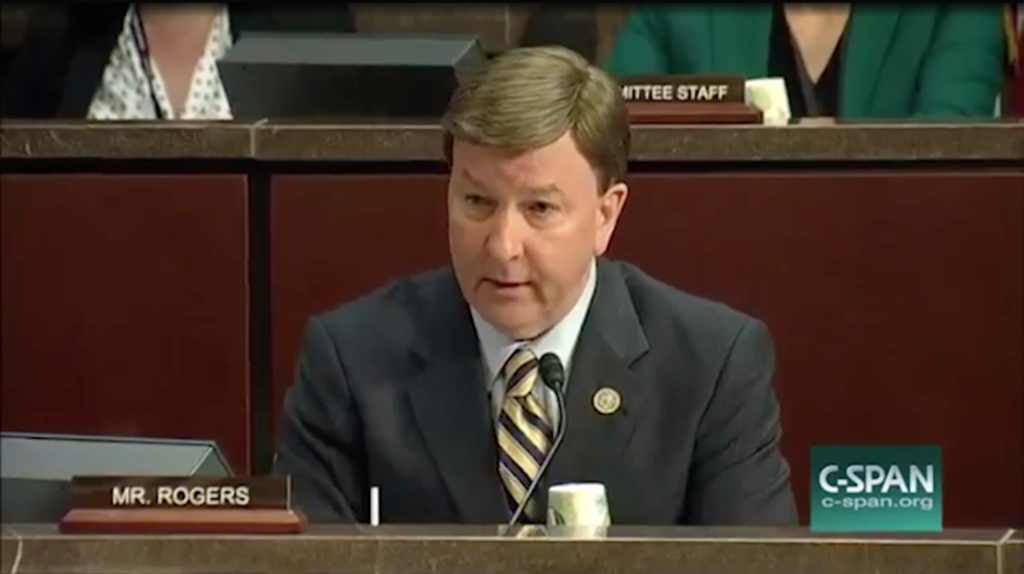
Congressman Mike Rogers, the Chairman of the powerful House Armed Services Committee, and Jim Banks, Chairman of the Subcommittee on Military Personnel, are demanding answers from Secretary of Defense Lloyd Austin on racially disparaging comments made by Kelisa Wing, the chief diversity, equity, and inclusion officer in the Department of Defense Education Activity (DoDEA). In a letter to Austin, Rogers and Banks wrote: “Our society values the virtues of merit, hard work, and equality of opportunity which distinguishes our nation from others. It is outrageous that a DOD official whose job it is to oversee “worldwide K-12 education programs for the children of DOD personnel,” has engaged in racially disparaging comments with clear inflammatory language on her social media and in other writings. Her comments do not represent the American ideal to treat everyone with respect. In fact, they call into question the current Administration’s commitment to ensuring that an involuntary trait of birth, like skin color, is an irrelevant factor in one’s ability to access opportunity and advancement. Leftist woke politics have no place in our military’s mission to protect all Americans.” Kelisa Wing has served as a Diversity, Equity, and Inclusion Specialist since October 2021. Prior to that appointment, Wing served at DoDEA HQ as a Professional Development Specialist as well as an Elementary School Assistant Principal at West Point, New York, and 8th-grade Language Arts and Reading teacher at Faith Middle School in Fort Benning, Georgia. Wing is an Army veteran. Wing has been involved with diversity, equity, and inclusion efforts for students and schools over many years and has authored several books on the topic. She was selected as a 2021 Equity Labs Nexus Fellow. She holds a bachelor’s degree in English from the University of Maryland, a Master of Arts in Secondary Education, and an Educational Specialist degree with a concentration in Curriculum, Instruction, and Educational Leadership from the University of Phoenix. In June, Wing publicly denounced White teachers on Twitter. “I’m exhausted with these white folx in these [professional development] sessions,” Wing said. “[T]his lady actually had the CAUdacity to say that black people can be racist too … I had to stop the session and give Karen the BUSINESS … [W]e are not the majority, we don’t have power.” According to dictionary.com, “caucacity” is a slang term used to make fun of behaviors perceived to be stereotypically white or to call out what’s seen to be a particularly bold instance of white privilege or racism. Wing self-identified as a “woke administrator,” decrying “white nonsense” on Twitter. “Where can I get a break from white nonsense for a while?” Wing wrote. “A number of our colleagues, including members of the House Armed Services Committee, have joined us in demanding answers to this straightforward inquiry,” the letter continued. “To date, no meaningful answers have been forthcoming. This is unacceptable.” DoDEA plans, directs, coordinates, and manages pre-kindergarten through 12th-grade education programs for school-age children of Department of Defense personnel who would otherwise not have access to high-quality public education. DoDEA schools are located in Europe, the Pacific, Western Asia, the Middle East, Cuba, the United States, Guam, and Puerto Rico. DoDEA also provides support and resources to Local Educational Agencies throughout the United States that serve children of military families. Rogers was made the Chairman of the House Armed Services Committee last month. He recently won his eleventh term representing Alabama’s Third Congressional District. To connect with the author of this story or to comment, email brandonmreporter@gmail.com.
Kevin McCarthy’s race for speaker risks upending House on Day One

In his quest to rise to House speaker, Kevin McCarthy is charging straight into history — potentially becoming the first nominee in 100 years unable to win the job on a first-round floor vote. The increasingly real prospect of a messy fight over the speaker’s gavel on Day One of the new Congress on Jan. 3 is worrying House Republicans, who are bracing for the spectacle. They have been meeting endlessly in private at the Capitol, trying to resolve the standoff. Taking hold of a perilously slim 222-seat Republican majority in the 435-member House and facing a handful of defectors, McCarthy is working furiously to reach the 218-vote threshold typically needed to become speaker. “The fear is that if we stumble out of the gate,” said Rep. Jim Banks, R-Ind., a McCarthy ally, then the voters who sent the Republicans to Washington “will revolt over that and they will feel let down.” Not since the disputed election of 1923 has a candidate for House speaker faced the public scrutiny of convening a new session of Congress only to have it descend into political chaos, with one vote after another, until a new speaker is chosen. At that time, it eventually took a grueling nine ballots to secure the gavel. McCarthy, a Republican from Bakersfield, California, who was first elected in 2006 and who remains allied with Donald Trump, has signaled he is willing to go as long as it takes in a floor vote to secure the speaker’s job he has wanted for years. The former president has endorsed McCarthy and is said to be making calls on McCarthy’s behalf. McCarthy has given no indication he would step aside, as he did in 2015 when it was clear he did not have the support. But McCarthy also is acknowledging the holdouts won’t budge. “It’s all in jeopardy,” McCarthy said Friday in an interview with conservative Hugh Hewitt. The dilemma reflects not just McCarthy’s uncertain stature among his peers but also the shifting political norms in Congress as party leaders who once wielded immense power — the names of Cannon, Rayburn, and now Pelosi adorn House meeting rooms and office buildings — are seeing it slip away in the 21st century. Rank-and-file lawmakers have become political stars on their own terms, able to shape their brands on social media and raise their own money for campaigns. House members are less reliant than they once were on the party leaders to dole out favors in exchange for support. The test for McCarthy, if he is able to shore up the votes on Jan. 3 or in the days that follow, will be whether he emerges a weakened speaker, forced to pay an enormous price for the gavel, or whether the potentially brutal power struggle emboldens his new leadership. “Does he want to go down as the first speaker candidate in 100 years to go to the floor and have to essentially, you know, give up?” said Jeffrey A. Jenkins, a professor at the University of Southern California and co-author of “Fighting for the Speakership.” “But if he pulls this rabbit out of the hat, you know, maybe he actually has more of the right stuff.” Republicans met in private this past week for another lengthy session as McCarthy’s detractors, largely a handful of conservative stalwarts from the Freedom Caucus, demand changes to House rules that would diminish the power of the speaker’s office. The Freedom Caucus members and others want assurances they will be able to help draft legislation from the ground up and have opportunities to amend bills during the floor debates. They want enforcement of the 72-hour rule that requires bills to be presented for review before voting. Outgoing Speaker Nancy Pelosi, D-Calif., and the past two Republican speakers, John Boehner and Paul Ryan, faced similar challenges, but they were able to rely on the currency of their position to hand out favors, negotiate deals, and otherwise win over opponents to keep them in line — for a time. Boehner and Ryan ended up retiring early. But the central demand by McCarthy’s opponents’ could go too far: They want to reinstate a House rule that allows any single lawmaker to file a motion to “vacate the chair,” essentially allowing a floor vote to boot the speaker from office. The early leaders of the Freedom Caucus, under BC, the former North Carolina congressman turned Trump’s chief of staff, wielded the little-used procedure as a threat over Boehner and later, over Ryan. It wasn’t until Pelosi seized the gavel the second time, in 2019, that House Democrats voted to do away with the rule and require a majority vote of the caucus to mount a floor vote challenge to the speaker. Rep. Chip Roy, R-Texas, said the 200-year-old rule was good enough for Thomas Jefferson, so it’s one he would like to see in place. “We’re still a long way from fixing this institution the way it needs to be fixed,” Roy told reporters Thursday at the Capitol. What’s unclear for McCarthy is even if he gives in to the various demands being made by the conservatives, whether that will be enough for them to drop their opposition to his leadership. Several House Republicans said they do not believe McCarthy will ever be able to overcome the detractors. “I don’t believe he’s going to get to 218 votes,” said Rep. Bob Good, R-Va., among the holdouts. “And so I look forward to when that recognition sets in and, for the good of the country, for the good of the Congress, he steps aside, and we can consider other candidates.” The opposition to McCarthy has promoted a counteroffensive from other groups of House Republicans who are becoming more vocal in their support of the GOP leader — and more concerned about the fallout if the start of the new Congress descends into an internal party fight. Rep. David Joyce, R-Ohio, who leads the Republican Governance Group, was wearing an “O.K.” button on his lapel — meaning, “Only Kevin,” he explained. Some have
Mike Rogers says Republicans will ‘root out’ wokeness in military if given control of Congress
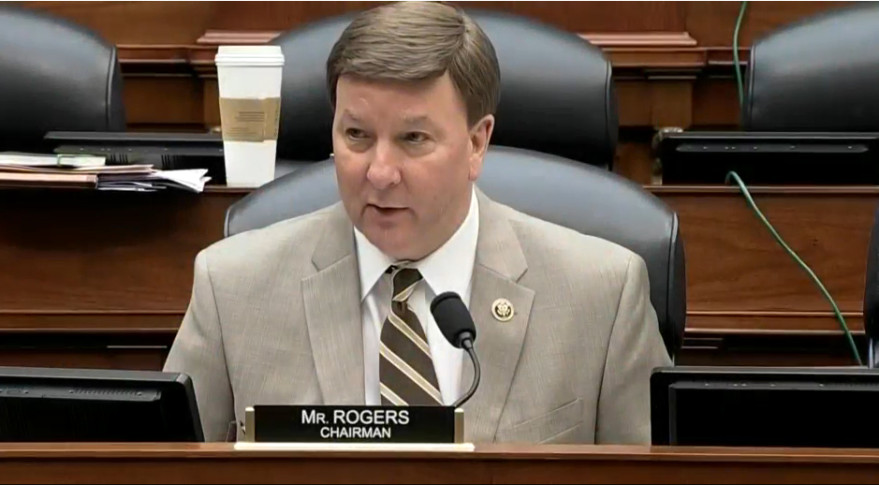
Congressman Mike Rogers recently told Military.com that Republicans will be aggressively trying to root out wokeness in the military if voters give Republicans control of Congress in the midterm elections. Rogers said the GOP would put military personnel issues at the forefront of the agenda if they retake control of the House of Representatives next year. Rogers vowed to take aim at “woke” policies in the military. “All this wokeness in the military, we are going to be aggressively trying to root that stuff out,” Rogers said. Rogers said that doing so would help with recruitment and retention. Rogers is the ranking Republican on the powerful House Armed Services Committee and would likely chair the committee if the GOP wins the House. Fellow Republican House Armed Services Committee member Jim Banks (R-Indiana) agreed. “I think it’s one of our very top priorities to clean up the mess the administration has made with the excessive and dangerous COVID mandates on our troops at a time where we have historically low recruitment,” said Rep. Banks. “Those are issues that we’ve been very passionate about in the minority, and I guarantee we’ll be just as passionate about them when we get the majority. When it comes to the posture hearings and the legislative process of the NDAA, I think you can expect more of the same from what you’ve seen the last couple of years.” Republicans have criticized the Biden administration’s handling of the nation’s armed forces, including COVID-19 vaccine mandates that have threatened to kick service members out of the military for refusing the vaccine and mandatory diversity training that has been compared to critical race theory initiatives. “The Department of Defense’s only focus should be ensuring that our military is the most capable and lethal in the world,” Rogers said on social media. “Wokeness doesn’t win wars.” The military has ended Don’t Ask, Don’t Tell policies, allows women in combat roles, and accepts transgender people. Instead of this being a bonanza for recruiting, the military has struggled to meet recruiting goals. The Army alone is 25% below its recruiting goals for 2022. The Army came 15,000 recruits short of its goal of 60,000 for the 2022 fiscal year, which ended on September 30. The other branches have had to go into their pool of delayed entry program candidates to barely hit 2022 goals but put them behind for 2023. The Army plans to increase its investment in marketing and is expected to expand a new program for struggling recruits in order to achieve its goals. Army Secretary Christine Wormuth told reporters that a new recruiting task force is coming up with ideas. Still, any new plans would have to gel quickly to reverse the dramatically low enlistment numbers over the past year. Wormuth said that it is too early to speculate on whether or not the Army will meet its 2023 goals. Wormuth and Army Chief of Staff Gen. James McConville said that a new program that helps low-performing recruits meet academic and fitness standards is showing some promise. The Army is considering expanding the program to more sites. “We want to make sure that there is the amount of recruits that can do that,” McConville said. “The initial results that we’re seeing is this may fundamentally change the way that we do recruiting.” McConville recently made a trip to see the program at Fort Jackson, South Carolina. In August, McConville said the program could be set up at three other Army training bases. Commanders had suggested they could put up to 10,000 potential recruits through the classes. The program provides up to 90 days of academic or fitness instruction to help recruits improve to the point where they can meet the minimum standards to enter the military. Rogers has represented Alabama’s Third Congressional District since 2002. Rogers is seeking his eleventh term in the House of Representatives. He faces Libertarian Thomas Casson and Democrat Lin Veasey in the November 8 general election. To connect with the author of this story, or to comment, email brandonmreporter@gmail.com.
FBI’s search of Donald Trump’s Florida estate: Why now?

The FBI’s unprecedented search of former President Donald Trump’s Florida residence ricocheted around government, politics, and a polarized country Tuesday, along with questions as to why the Justice Department — notably cautious under Attorney General Merrick Garland — decided to take such a drastic step. Answers weren’t quickly forthcoming. Agents on Monday searched Trump’s Mar-a-Lago estate, which is also a private club, as part of a federal investigation into whether the former president took classified records from the White House to his Florida residence, people familiar with the matter said. It marked a dramatic escalation of law enforcement scrutiny of Trump, who faces an array of inquiries tied to his conduct in the waning days of his administration. From echoes of Watergate to the more immediate House probe of the January 6 Capitol insurrection, Washington, a city used to sleepy Augusts, reeled from one speculative or accusatory headline to the next. Was the Justice Department politicized? What prompted it to seek authorization to search the estate for classified documents now, months after it was revealed that Trump had taken boxes of materials with him when he left the White House after losing the 2020 election? Garland has not tipped his hand despite an outcry from some Democrats impatient over whether the department was even pursuing evidence that has surfaced in the January 6 probe and other investigations— and from Republicans who were swift to echo Trump’s claims that he was the victim of political prosecution. All Garland has said publicly is that “no one is above the law.” A federal judge had to sign off on the warrant after establishing that FBI agents had shown probable cause before they could descend on Trump’s shuttered-for-the-season home — he was in New York, a thousand or so miles away, at the time of the search. Monday’s search intensified the months-long probe into how classified documents ended up in boxes of White House records located at Mar-a-Lago earlier this year. A separate grand jury is investigating efforts to overturn the results of the 2020 presidential election, and it all adds to potential legal peril for Trump as he lays the groundwork for a potential repeat run for the White House. Trump and his allies quickly sought to cast the search as a weaponization of the criminal justice system and a Democratic-driven effort to keep him from winning another term in 2024 — though the Biden White House said it had no prior knowledge and current FBI Director Christopher Wray was appointed by Trump five years ago. Trump, disclosing the search in a lengthy statement late Monday, asserted that agents had opened a safe at his home, and he described their work as an “unannounced raid” that he likened to “prosecutorial misconduct.” Justice Department spokesperson Dena Iverson declined to comment on the search, including whether Garland had personally authorized it. White House press secretary Karine Jean-Pierre said the West Wing first learned of the search from public media reports, and the White House had not been briefed in the run-up or aftermath. Jean-Pierre refused to say whether Biden wanted the attorney general to explain publicly the rationale for the search amid the concerns about politicization of the probe. “The Justice Department conducts investigations independently, and we leave any law enforcement matters to them,” she said. “We are not involved.” About two dozen Trump supporters stood in protest at midmorning Tuesday in the Florida summer heat and sporadic light rain on a bridge near the former president’s residence. One held a sign reading “Democrats are Fascists,” while others carried flags saying “2020 Was Rigged,” “Trump 2024,” and Biden’s name with an obscenity. Some cars honked in support as they passed. Trump’s Vice President Mike Pence, a potential 2024 rival, tweeted Tuesday, “Yesterday’s action undermines public confidence in our system of justice, and Attorney General Garland must give a full accounting to the American people as to why this action was taken, and he must do so immediately.” Trump was planning to meet Tuesday at his Bedminster, New Jersey, a club with members of the Republican Study Committee, a group headed by Rep. Jim Banks of Indiana that says it is committed to putting forth his priorities in Congress. The FBI reached out to the Secret Service shortly before serving a warrant, a third person familiar with the matter told The Associated Press. Secret Service agents contacted the Justice Department and were able to validate the warrant before facilitating access to the estate, the person said. The Justice Department has been investigating the potential mishandling of classified information since the National Archives and Records Administration said it had received from Mar-a-Lago 15 boxes of White House records, including documents containing classified information, earlier this year. The National Archives said Trump should have turned over that material upon leaving office, and it asked the Justice Department to investigate. There are multiple federal laws governing the handling of classified records and sensitive government documents, including statutes that make it a crime to remove such material and retain it at an unauthorized location. Though a search warrant does not necessarily mean criminal charges are near or even expected, federal officials looking to obtain one must first demonstrate to a judge that they have probable cause that a crime occurred. Two people familiar with the matter, speaking on condition of anonymity to discuss an ongoing investigation, said the search Monday was related to the records probe. Agents were also looking to see if Trump had additional presidential records or any classified documents at the estate. Trump has previously maintained that presidential records were turned over “in an ordinary and routine process.” His son Eric Trump said on Fox News on Monday night that he had spent the day with his father and that the search happened because “the National Archives wanted to corroborate whether or not Donald Trump had any documents in his possession.” Trump himself, in a social media post on Monday night, called the search a “weaponization of the Justice System,
Reps. Barry Moore and Mo Brooks demand DOD halt involuntary discharges for vaccine refusal immediately

Reps. Barry Moore and Mo Brooks joined 40 of their colleagues in sending a letter to the Department of Defense (DOD) to demand that they halt efforts to involuntarily discharge members of the military who have refused COVID-19 vaccination. The letter requests that they stop until an in-depth review of natural immunity is complete, and the Department has issued uniform procedures for vaccine exemptions. According to Moore’s press release, Section 720 of the National Defense Authorization Act for Fiscal Year 2022 requires the DOD to establish uniform procedures for issuing exemptions and fully consider natural immunity. This includes eligibility timelines for consideration of exemptions for service members nearing separation and retirement in the development of uniform procedures relating to administrative exemptions. According to an NPR report, as of January 26, 96% of active troops had been completely vaccinated, while 3,350 soldiers had refused to get the vaccine. Nearly 5,900 have received temporary exemptions. “The DOD must immediately halt efforts to discharge our active-duty military members who refuse to get the vaccine just because overreaching politicians want to continue intervening in the private lives of the American people,” said Moore. “We must ensure that the DOD completes an in-depth review of natural immunity. I will continue to fight against the tyrannical vaccine mandate on our service members.” The letter states, “We are gravely concerned that the military services are proceeding with involuntary discharges when it is unclear to us whether uniform procedures have been issued by the Department of Defense. If the Department of Defense has not issued uniform procedures or reviewed the inclusion of natural immunity and the military services are moving forward with involuntary discharges, then we believe the Department is ignoring and violating Section 720. Congress included this language to protect our service members, and we expect the Department of Defense to abide by the law.” Additional members of Congress to sign the letter include Vicky Hartzler, Doug Lamborn, Elise Stefanik, Brian Mast, David McKinley, Darrell Issa, Kevin Hern, Rodney Davis, Bill Huizenga, Yvette Herrell, Michael Waltz, Bill Posey, Michael Guest, David Valadao, Thomas Tiffany, Pete Stauber, Mike Kelly, Andy Biggs, Neal Dunn, Gus Bilirakis, Dan Crenshaw, Randy Weber, Sr., Louie Gohmert, Lauren Boebert, Glenn Grothman, Alex Mooney, Joe Wilson, Scott DesJarlais, Jack Bergman, David Schweikert, Jeff Duncan, Ralph Norman, Bruce Westerman, Jim Banks, Rick Crawford, Jodey Arrington, Christopher H. Smith, Victoria Spartz, Ted Budd, and Gregory Steube.
Debt ceiling battle looms ahead of Congress’ return
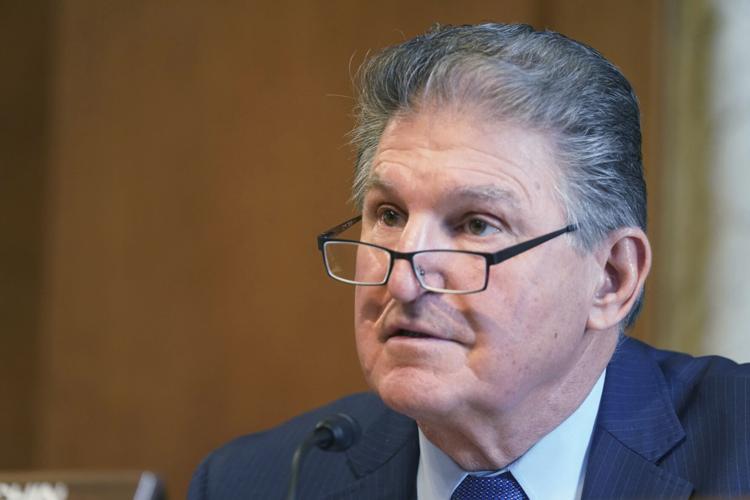
As Congress prepares to return from August recess, President Joe Biden’s plans for trillions in federal spending hang in the balance. Congressional Republicans are making clear they intend to oppose the full brunt of the significant increase in federal spending, in particular Democrats’ plans to raise the debt ceiling. More than 100 Republicans have backed a public letter vowing not to raise the debt ceiling, which was surpassed in July and would need to be increased before enacting Biden’s federal spending plans. “Democrats have embarked on a massive and unprecedented deficit spending spree,” the letter says. “Without a single Republican vote, they passed a $1.9 trillion ‘Covid relief’ bill in March. Now they have passed a $3.5 trillion Budget Resolution, again without a single Republican vote.” The debt ceiling could become a rallying point for Republicans looking to take a stand against Biden’s $1 trillion infrastructure bill and the following $3.5 trillion reconciliation bill, both of which are in flux. “In order for this spending to occur, our nation’s debt limit will have to be increased significantly,” the letter says. “Because Democrats are responsible for the spending, they need to take responsibility for increasing the debt ceiling. They have total control of the government and the unilateral ability to raise the debt ceiling to accommodate their unilateral spending plans. … Doing so would not require a single Republican vote and would appropriately require each and every Democrat to take responsibility for their out-of-control spending.” Republicans have taken issue with a range of provisions in the bills, but inflation, gas prices, immigration amnesty, and Green New Deal measures have taken center stages as they rally opposition. “Joe Biden and Congressional Democrats are inflaming disasters that they created,” said Rep. Jim Banks of Indiana, one of the leading members behind the letter. “Thanks to their spending-fueled inflation, Americans’ paychecks have effectively been slashed. What’s Democrats’ plan? Spend another $3.5 trillion. Our border is overwhelmed, so they’re pushing for the largest amnesty in history. Gas prices have skyrocketed, and they want the Green New Deal.” House Republicans have allies in the Senate on this issue. Earlier this month, 46 Republican Senators signed a letter pledging they would not vote to raise the debt ceiling. The letters from Republicans in both chambers give an idea of how the party will message its opposition to Biden’s spending, which does have some popular provisions. So far, the bill’s opponents have balked at the high price tag, including Sen. Joe Manchin, D-W.Va., and Sen. Kyrsten Sinema, D-Ariz, who said they cannot support a $3.5 trillion bill. “However, I have serious concerns about the grave consequences facing West Virginians and every American family if Congress decides to spend another $3.5 trillion,” Manchin said after the bill’s release. “Over the past year, Congress has injected more than $5 trillion of stimulus into the American economy – more than any time since World War II – to respond to the pandemic.” By Casey Harper | The Center Square
House panel probing 1/6 riot seeks host of Trump-era records
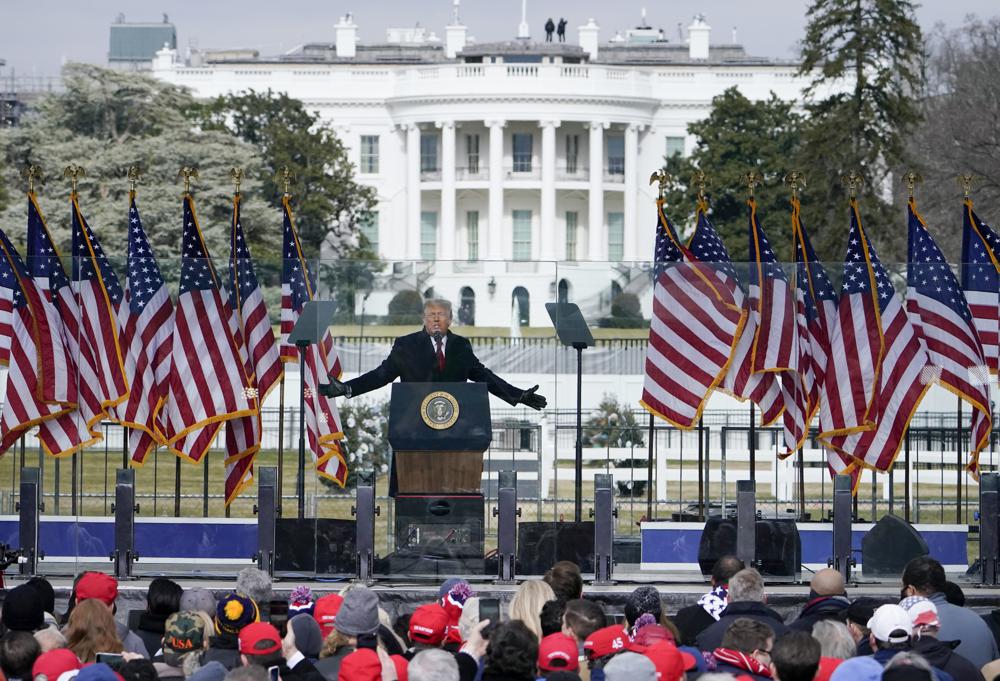
The House committee investigating the January insurrection at the U.S. Capitol is demanding a trove of records from federal intelligence and law enforcement agencies, showing the sweep of the lawmakers’ review of the deadly attack by a mob of Donald Trump supporters. The request Wednesday seeks information about events leading up to the Jan. 6 riot, including communication within the White House under then-President Trump and other agencies, and information about planning and funding for rallies held in Washington. Among them is an event at the Ellipse, near the White House, featuring remarks by Trump where he egged on a crowd of thousands before loyalists stormed the Capitol. The requested documents are just the beginning of what is expected to be a lengthy partisan and rancorous investigation into how the mob was able to infiltrate the Capitol and disrupt the certification of Democrat Joe Biden’s presidential victory, inflicting the most serious assault on Congress in two centuries. Committee members are also considering asking telecommunications companies to preserve phone records of several people, including members of Congress, to try to determine who knew what about the unfolding riot and when they knew it. With chants of “hang Mike Pence,” the rioters sent the then-vice president and members of Congress running for their lives and did more than $1 million in damage, and wounded dozens of police officers. Records requests are typically the starting point for investigations, and the committee is expected to conduct a wide-ranging review as it builds a public record detailing the chaos on Jan. 6. That inquiry could take more than a year, until the end of the congressional session. The demands are being made for White House records from the National Archives, along with material from the departments of Defense, Justice, Homeland Security and Interior, as well as the FBI and the Office of the Director of National Intelligence. The committee is also seeking information about efforts within the Trump administration to push the president’s baseless claims of election fraud and any efforts to try to overturn the results of November’s election or to “impede the peaceful transfer of power.” The request for the National Archives and Records Administration is 10 pages long. The committee is seeking “All documents and communications within the White House on January 6, 2021” related to Trump’s close advisers and family members, the rally at the Ellipse, and Trump’s Twitter feed. It asks for his specific movements on that day and communications, if any, from the White House Situation Room. Also sought are all documents related to the claims of election fraud, as well as Supreme Court decisions on the topic. Rep. Bennie Thompson, D-Miss., is heading the committee, appointed by House Speaker Nancy Pelosi, D-Calif., after all, but two Republicans opposed the creation of the 13-person panel. The committee so far has heard from police officers who were at the Capitol on Jan. 6. In emotional testimony, those officers spoke of how afraid and frustrated they were by the failure of law enforcement leaders to foresee the potential for violence and understand the scope of planning by the Trump backers. A Capitol Police officer who fatally shot protester Ashli Babbitt was cleared months ago of criminal wrongdoing and was cleared internally by the department this week, and was planning to reveal his identity in an NBC interview to air Thursday. Most in the GOP argued that the majority-Democratic committee would conduct a partisan inquiry. House Democrats originally attempted to create an evenly split, independent commission to investigate the insurrection, but that effort fell short when it was blocked by Senate Republicans. Thompson did not identify the lawmakers whose records the committee would seek, but he has said officials would be contacting communication companies, social media platforms, and other tech giants. House Republican leader Kevin McCarthy of California, who had been in touch with Trump from the besieged Capitol on Jan. 6, again dismissed the committee’s investigation as “so political.” When he was asked whether he would turn over his own phone logs from Jan. 6, he said Wednesday, “I told the American public who I talked to that day,” referring to his television news appearances that day. In a Fox News appearance Tuesday evening, Rep. Jim Banks, R-Ind., whose phone records may also be sought, said it was “an abuse of power” to investigate lawmakers. Thompson, in a written statement, said the committee’s work was rooted in apolitical fact-finding. “Our Constitution provides for a peaceful transfer of power, and this investigation seeks to evaluate threats to that process, identify lessons learned and recommend laws, policies, procedures, rules, or regulations necessary to protect our republic in the future,” he said. Republished with the permission of the Associated Press.
Kevin McCarthy proposes 5 Republicans to sit on Jan. 6 panel
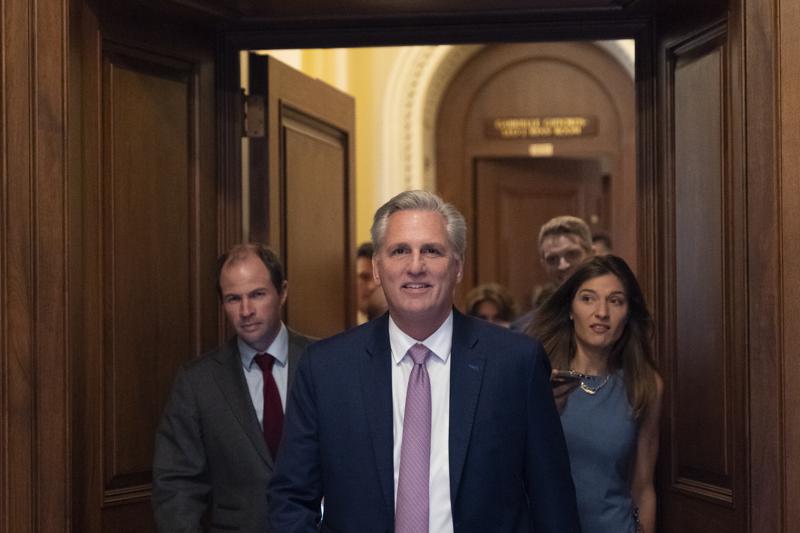
House Republican leader Kevin McCarthy has picked five Republicans to sit on the new select committee to investigate the Jan. 6 insurrection at the Capitol, signaling that Republicans will participate in the investigation that they have staunchly opposed. McCarthy said Monday that he had selected Indiana Rep. Jim Banks, who recently visited former President Donald Trump on trips to the U.S.-Mexico border and Trump’s New Jersey golf club, to be the top Republican on the panel. The Republican leader also tapped Ohio Rep. Jim Jordan, Illinois Rep. Rodney Davis, North Dakota Rep. Kelly Armstrong, and Texas Rep. Troy Nehls to serve on the committee. House Speaker Nancy Pelosi must approve the names before they are final, per committee rules. An aide to Pelosi said she had received notification from McCarthy, but it is unclear when or if she will approve the GOP members. The aide was granted anonymity to discuss the Republican picks ahead of an official announcement. The five Republican men selected by McCarthy have all backed Trump, whose supporters laid siege to the Capitol building on Jan. 6 and interrupted the certification of President Joe Biden’s victory. Banks, Jordan, and Nehls all voted to overturn Biden’s win that day, even after the rioting. Davis and Armstrong were among the minority of Republicans who voted to certify Biden’s win. McCarthy’s picks come after all, but two Republicans opposed the creation of the 13-person select committee in a House vote last month, with most in the GOP arguing that the majority-Democratic panel would conduct a partisan probe. House Democrats originally attempted to create an evenly split, independent commission to investigate the insurrection, but that effort fell short when it was blocked by Senate Republicans. House Republicans have largely remained loyal to Trump despite the violent insurrection of his supporters that sent many of them running for their lives. Banks made clear in a statement Monday evening that he would take a politically combative approach to his leadership on the panel, sharply criticizing the Democrats who had set it up. “Make no mistake, Nancy Pelosi created this committee solely to malign conservatives and to justify the Left’s authoritarian agenda,” Banks said. Jordan, one of Trump’s staunchest defenders through his two impeachments and the top Republican on the House Judiciary Committee, said after the House vote to form the panel that he believed the investigation is “impeachment three” against the former president. Trump was impeached by the House and acquitted by the Senate both times. The members selected by McCarthy had mixed reactions to the insurrection as it happened on Jan. 6. While Jordan led the effort to overturn election results, others tweeted to the rioters to end the violence or condemned it. “Thank you to the Capitol police and all law enforcement,” Armstrong tweeted shortly after the House was evacuated that afternoon. “Rioting is not protesting. This needs to stop. Now.” Around the same time, Davis tweeted: “This is a sad day for our country. The lawlessness has got to stop. Protestors must leave the Capitol so Congress can resume the process of confirming the Electoral College vote.” Nehls, a former sheriff, was one of several members who helped barricade the House doors as rioters tried to beat them down. He tweeted an Associated Press photo of himself holding the door alongside Capitol Police — face to face with rioters who had broken the glass in the entryway. “I was proud to stand shoulder to shoulder with Capitol police barricading entrance to our sacred House chamber while trying to calm the situation talking to protestors,” Nehls tweeted. “What I’m witnessing is a disgrace. We’re better than this. Violence is NEVER the answer. Law and order!” A week later, all five members voted against the impeachment of Trump, who had told his supporters gathered in Washington on Jan. 6 to “fight like hell” to overturn his election defeat. The Democratic chair of the select committee, Mississippi Rep. Bennie Thompson, said Monday evening that he hadn’t seen the GOP names but referred the matter to Pelosi. “It’s up to her,” he said. Pelosi named eight members of the committee earlier this month — seven Democrats and Republican Rep. Liz Cheney of Wyoming, who has strongly criticized Trump and has been the most outspoken member of her caucus against the insurrection. Cheney, who was demoted from GOP leadership in May over her comments, was one of the two Republicans who voted in favor of forming the committee, along with Illinois Rep. Adam Kinzinger. As McCarthy stayed quiet for weeks on Republican participation on the panel, Thompson has said that the committee will have a quorum to conduct business whether GOP members are present or not. The new members will be put to the test at the panel’s first hearing next week, with at least four rank-and-file police officers who battled rioters that day testifying about their experiences. Dozens of police officers were injured as the crowd pushed past them and broke into the Capitol building. Seven people died during and after the rioting, including a woman who was shot by police as she tried to break into the House chamber and three other Trump supporters who suffered medical emergencies. Two police officers died by suicide in the days that followed, and a third officer, Capitol Police Officer Brian Sicknick, collapsed and later died after engaging with the protesters. A medical examiner determined he died of natural causes. Republished with the permission of the Associated Press.
Mo Brooks moves forward on challenging Electoral College votes
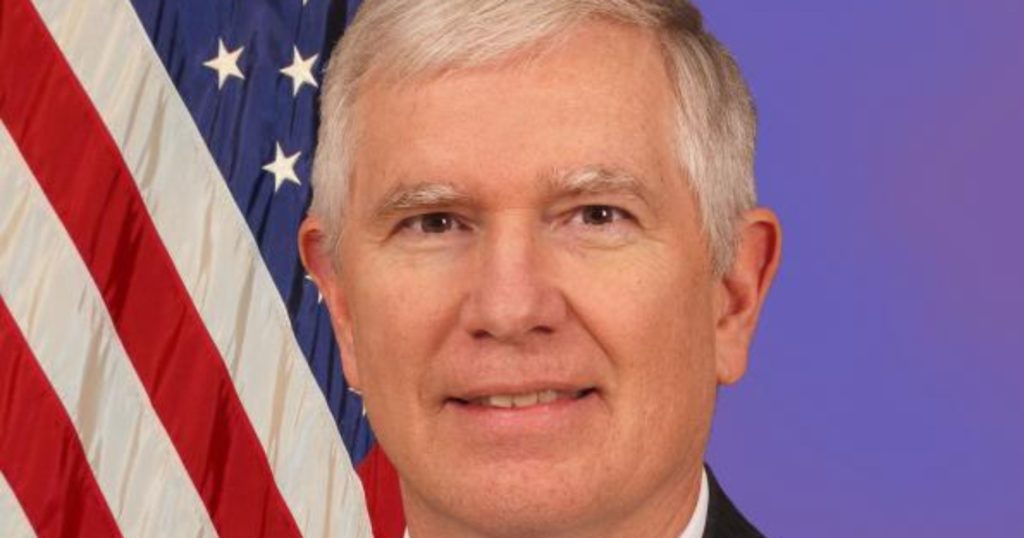
Alabama Congressman Mo Brooks is challenging the Presidential Election votes and is following through with the threat to ask certain electoral college votes to be thrown out. Brooks wants certain electoral votes thrown out based on President Donald Trump’s allegations of massive voter fraud, News 19 reported. So far every lawsuit that has been filed has been dismissed, including one in the U.S. Supreme Court. This time Brooks, along with 18 other leaders, are asking Mitch McConnell and others to “do their jobs and conduct voter fraud and election theft hearings and investigations so that Congressmen and Senators will be better informed when Congress faces questions about the legitimacy of various federal elections held on November 3, 2020.” Brooks posted on Facebook and Twitter, calling on Congress to reverse the presidential election results and give the win to Donald Trump. At the end of the letter, Brooks asks Congress to hold hearings to do three things: 1. Probe all allegations of illegal conduct concerning the November 3, 2020 elections. 2. Investigate systemic problems affecting our elections. 3. Hear from election experts to explore legislative solutions that lessen the impact of fraudulent and illegal votes and restores faith that America can hold a free and fair election. Political analyst and attorney Mark McDaniel told News19, “Not only does Congressman Brooks have a right to do it. He has a duty to do it if he feels there is a problem with the election, then he should raise objections to it. And I know there will be a number of other members of The House of Representatives that will probably go along with Congressman Brooks on this.” David Person, political analyst and radio host, has a different opinion on Brooks’ actions. Pearson stated, “This is what’s disturbing about these efforts, by Mo and others. They don’t seem to have the focus or the energy to try to address arguably the largest health crisis of the past 50, 60 years, but they have all of the energy and all of the focus in the world to focus on an election that was lost.” Other leaders who have signed the letter are Andy Biggs, Mike D. Rogers, Jim Banks, David Rouzer, Paul Gosar, Ted Budd, Brian Babin, Bob Gibbs, Ralph Norman, Greg Steube, Jody Hice, Mike Kelly, Jeff Duncan, Louie Gohmert, Randy Weber, Scott DesJarlais, and Mike Garcia. Brooks needs support from at least one Senator to trigger a debate before Congress. According to a Washington Examiner article, Brooks told Washington Secrets this week, “I’m cautiously optimistic that there will be one or more United States senators who will fight to reject voter fraud and election theft. Ultimately, whether a senator acts on behalf of our country will be determined by whether that senator’s employers, the American people, have made it known to the senators that this is a litmus test issue.” Brooks continued, “Either you fight for America, or voters never vote for them again and fight against them.”


